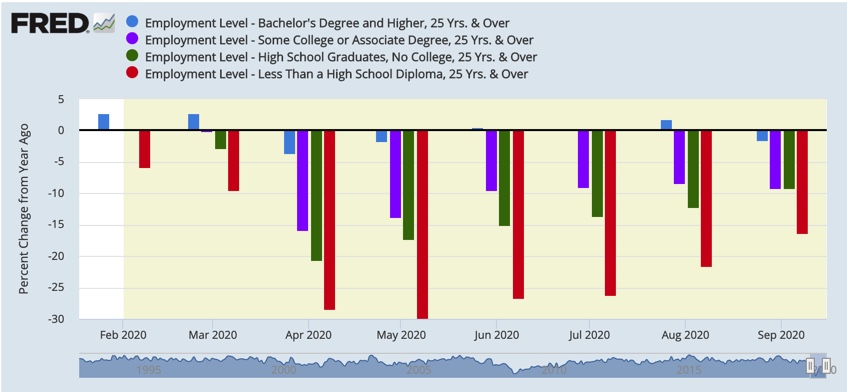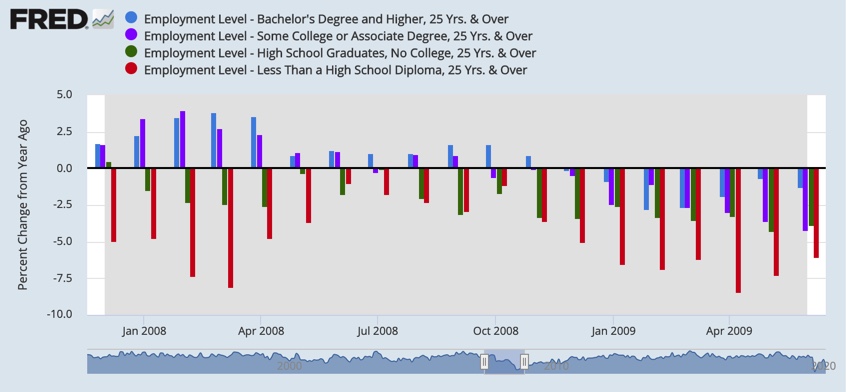Low educated people and recessions
Covid-19 has delivered a huge blow to our economy. As I have written before, these costs will mostly be borne by already economically disadvantaged people, including low-income students and minorities. Here is more detail on how recessions affect workers of different levels of education to show why this is true.
According to an analysis of employment data by the Federal Reserve Bank of St. Louis, historical trends show that the least educated persons tend to be the most affected by movements in the labor industry during recessions. Take for instance the following graph showing employment data from the coronavirus shutdown induced recession.
Workers with less than a high school diploma (25 and older) had the biggest downward shift in employment levels. And workers with a bachelor’s degree and higher had the least shift in employment levels in the recession. This is very easy to explain and reconcile with we have seen with low-income people in the labor force.
Low-income workers tend to be unskilled and are concentrated in service industries or jobs not requiring special skills. The shutdown induced recession heavily impacted those sectors where low skilled workers overrepresent, hence the trend we are seeing.

Source: Federal Reserve Bank of St. Louis
The same trend is true when we look at employment trends during the 2008-2009 recession. Least educated individuals are again the most impacted when it came to employment. This trend is especially more pronounced at the beginning of the recession. In the very end even though all educational levels were impacted, lower levels of education were still the most impacted.

Source: Federal Reserve Bank of St. Louis
Policy implications
One big take away here is that people are affected differently by changes in the economy. And more importantly, low educated workers (who tend to be low skilled and have low income) are the most vulnerable in economic downturns. However, a one-size-fits-all approach to policy does not take any of these factors into consideration. The Covid-19 shutdown is a good example of why that needs to be avoided at all costs in the future.